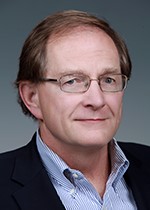Department of Nuclear Engineering

All Events
- This event has passed.
[Seminar] NDE Techniques for Monitoring Advanced Reactors
October 15, 2020 @ 4:00 pm - 5:00 pm
Event Navigation
S.W. (Bill) Glass
Advisor
Nuclear Engineering and Analysis
Pacific Northwest National Laboratory
Abstract
Advanced reactors offer a promise of lower-cost energy compared to current technologies plus many of the breeder and waste burner designs virtually eliminate the problem of radioactive waste storage. There are still significant technology gaps however that prevent these advanced reactors from being licensed, built, and operated. One of these gap areas is nondestructive evaluation to assure continued structural integrity of radioactive coolant containment boundaries. This is a focus area for PNNL and progress is being made to bridge this gap clearing the path for advanced reactor operation. This presentation begins with an overview of various advanced reactor designs noting that the only configurations with significant operating experience are the sodium designs that have been operated in France, US, Russia, China, and Japan. The presentation continues by addressing PNNL’s sensor developments for inspection and online monitoring for cracks, wall thinning, ultrasonic flow measurement, coolant chemistry, and other parameters of interest for advanced reactors. Sensors include high temperature piezoelectric ultrasound sensors for heat exchanger monitoring, magnetostrictive electromagnetic acoustic transducers (EMAT) for guided wave ultrasound crack sensing, fluid flow sensing, fiber optic spectral analysis of molten salt chemistry and other areas where PNNL is investing to develop sensors and measurement technology for advanced reactor harsh environments. Without adequate on-line inspection technologies to assess operational safety issues of concern thereby bridging these technology gaps, the advanced reactors cannot be licensed, built, or operated.
Biography
Bill Glass is a technical advisor with more than 40 years of experience working on nondestructive evaluation (NDE), materials characterization, and robotics for inspection in hazardous environments in the United States and Europe. His work at PNNL supports DOE, NRC, and DHS projects in the area of energy, advanced reactors, nuclear storage, and test and evaluation. Recent projects include on-line high temperature sensors for heat exchangers, guided wave ultrasound sensors, and cable inspection technologies. Bill also supports strategy development for the national security leadership team and participates in and manages several large projects.
Before joining PNNL, Bill served as chief technical advisor for AREVA/Framatome, providing technical and project management oversight on inspection, design and condition monitoring services for nuclear power plants and research reactors in the nuclear energy market. He advised company leadership and technical teams on design, engineering, maintenance, installation, inspection, and repair of nuclear steam supply components and fuel for nuclear power plants and reactor services worldwide. Bill also oversaw large proposal bid review, nondestructive evaluation IP, and competitor intelligence for AREVA/Framatome global NDE solutions.
Thursday, October 15. 2020
4:00 pm seminar

